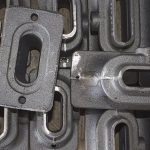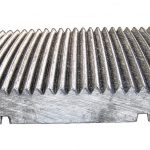What Are The Different Types of Metal Casting Processes?
Metal casting is the procedure of pouring molten metal into a mould with a hollow cavity of any desired geometrical shape. The mould cools down to form a solidified parts. While it is mainly used to manufacture complex parts, it serves industrial application purposes. The casting process determines the quality, finishing, complexity, properties and dimensional accuracy of the matter. The Manganeses casting manufacturer also follows the same technique of casting.
Steps for Metal Casting Process
- Pattern Making
- Making the mould
- Melting the metal and pouring inside
- Post Processing
Different Types of Metal Casting Process
- Expandable Mould casting
This makes use of a temporary, non-reusable mould that can produce the final metal casting. The engineers break the mould to take out the casting. The castings are made from sand, ceramics or plaster. Binders known as the bonding agent perform the bounding function, which improves the properties of the mould. The engineers can also cast complex and intricate geometries using this expandable mould casting.
- Permanent Mould casting
Some people refer to it as the non-expandable mould castings. These are permanent moulds, and the manufacturers re-use them after every production cycle. They mostly produce repeatable parts while re-using the same mould; hence it is suitable for simple castings. You have to open the moulding machine to bring out the casting.
- Sand casting
It makes use of sand to create a total mould cavity. Sand is a refractory material that resists all kinds of molten metal. It has good binding properties and is mainly utilised to produced large volumes of metal casting. It is also cost-effective for post-casting tooling and is applicable for both ferrous and non-ferrous metals.
- Investment casting
This process offers a high degree of accuracy, which a relatively high-quality surface finish. The manufacturers use this to make thin-walled parts having complex geometries. With this, you can cast both ferrous and non-ferrous metals, just like sand casting.
Here, the manufacturers use disposable wax like beeswax to create a type of model or a specific pattern. They pre-coat it with refractory material after drying and heating it. This way, the casting holds the pattern and resists the molten metal for a little while. They inject the coated wax into the mould, pour molten metal, and eventually take the desired shape.
Advantages of Metal Casting
- It can produce complex shapes
- You can easily achieve hollow internal cavities
- One-piece cast can produce a large component
- Casting is a cost-effective alternative to the rest
- Casting is possible for all kinds of metal
Huston India Pvt. Ltd is a highly reputable manufacturer, retailer and supplier of alloy steel castings for industrial-grade usage. For product manufacturing, they adhere to strict quality control and abide by prompt and scheduled delivery routines. Their services include the casting of stainless steel, Ni-hard casting, alloy steel, grey iron, manganese casting and more. The inspectors also execute quality testing to ensure that the products are durable and functional.




